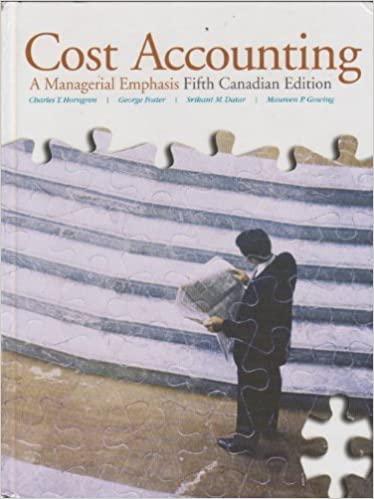Answered step by step
Verified Expert Solution
Question
1 Approved Answer
Question: Beasley Ball Bearings Paid A $4 Dividend Last Year. The Dividend Is Expected To Grow At A Constant Rate Of 6 Percent Over The
Question: Beasley Ball Bearings Paid A $4 Dividend Last Year. The Dividend Is Expected To Grow At A Constant Rate Of 6 Percent Over The Next Four Years. The Required Rate Of Return Is 18 Percent (This Will Also Serve As The Discount Rate In This Problem). Use Appendix B For An Approximate Answer But Calculate Your Final Answer Using The Formula And Financial
This problem has been solved!
Beasley Ball Bearings paid a $4 dividend last year. The dividend is expected to grow at a constant rate of 6 percent over the next four years. The required rate of return is 18 percent (this will also serve as the discount rate in this problem). Use Appendix B for an approximate answer but calculate your final answer using the formula and financial calculator methods.
a. Compute the anticipated value of the dividends for the next four years. (Do not round intermediate calculations. Round your final answers to 2 decimal places.)
b. Calculate the present value of each of the anticipated dividends at a discount rate of 18 percent. (Do not round intermediate calculations. Round your final answers to 2 decimal places.)
c. Compute the price of the stock at the end of the fourth year (P4). (Do not round intermediate calculations. Round your final answer to 2 decimal places.)
d. Calculate the present value of the year 4 stock price at a discount rate of 18 percent. (Do not round intermediate calculations. Round your final answer to 2 decimal places.)
e. Compute the current value of the stock. (Do not round intermediate calculations. Round your final answer to 2 decimal places.)
f. Use the formula given below to show that it will provide approximately the same answer as part e. (Do not round intermediate calculations. Round your final answer to 2 decimal places.)
P0 =
D1
Ke g
h. By what dollar amount is the stock price in part g different from the stock price in part f? (Do not round intermediate calculations. Round your final answer to 2 decimal places.)
i. With regard to the stock price in part f, indicate which direction it would move if:
Step by Step Solution
There are 3 Steps involved in it
Step: 1

Get Instant Access to Expert-Tailored Solutions
See step-by-step solutions with expert insights and AI powered tools for academic success
Step: 2

Step: 3

Ace Your Homework with AI
Get the answers you need in no time with our AI-driven, step-by-step assistance
Get Started


